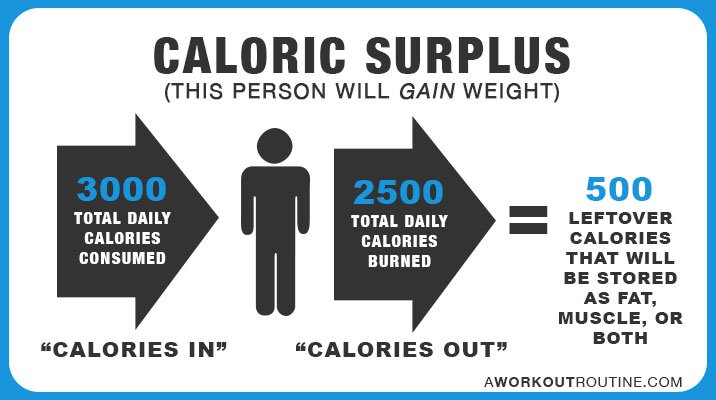
Sugar Does Not Make You Fat: Here Is What Actually Does
For decades, sugar has been framed as the ultimate villain of modern health. Every diet trend and wellness influencer seems to repeat the same message: sugar is bad for health and cutting it out will make you leaner. But is this really the truth? Or are we oversimplifying a complex issue? When people ask, does sugar make you fat, the honest answer is more nuanced.
Sugar, on its own, does not directly cause fat gain. What makes you fat is the combination of total calorie intake, lifestyle, and other dietary habits, not just one nutrient. In fact, the body processes sugar in specific ways depending on context, activity levels, and overall diet quality.
Research consistently shows that long-term weight gain is more about chronic calorie surplus, lack of activity, and poor metabolic health than simply eating sugar. So while excessive sugar may contribute to unhealthy patterns, declaring it the single culprit misses the bigger picture. In this article, I will break down the science, highlight what truly leads to fat gain, and help answer the ongoing debate: is sugar bad, good for health, or somewhere in between?
Does Sugar Make You Fat? The Evidence
The question does sugar make you fat has been asked for decades, but studies suggest the answer is not straightforward. A 2013 systematic review in the British Medical Journal concluded that weight gain associated with sugar intake was primarily due to excess calories. When people ate sugary foods and drinks in addition to their regular meals, they consumed more calories overall, which eventually led to fat gain.
However, when sugar was substituted for other carbohydrates without increasing total calories, weight gain did not occur. This means sugar itself is not inherently fattening. Instead, it is the calorie surplus that matters. So if you are wondering what makes you fat, it is consistently eating more energy than your body uses, regardless of whether those calories come from sugar, fat, or protein.
The Role of Calorie Surplus
When we ask what makes you fat, the scientific answer points back to calorie balance. If you burn fewer calories than you consume, your body stores the extra energy, mostly as fat. Sugar can play a role because it is often present in calorie-dense, highly palatable foods like desserts, soft drinks, and processed snacks.

These foods make it easier to consume more energy without realizing it. But once again, the mechanism is not sugar alone; it is the chronic surplus. For example, eating 100 calories of sugar while staying within your daily needs will not automatically lead to fat gain. On the other hand, eating 500 calories of “healthy” foods like nuts or olive oil beyond your daily requirements can still lead to fat storage.
Is Sugar Bad for Health or Good for Health?
So, is sugar bad? The answer depends on context. Excessive added sugar, particularly from sweetened beverages, has been linked to higher risks of obesity, type 2 diabetes, and cardiovascular disease. A large 2014 study published in JAMA Internal Medicine found that people who consumed more than 25 percent of daily calories from added sugar were twice as likely to die from heart disease as those who kept it below 10 percent. This is one reason public health guidelines suggest keeping added sugar intake low.
However, saying sugar is always bad ignores its role in balanced diets and athletic performance. Natural sugars in fruits, for example, come packaged with fiber, vitamins, and antioxidants that are undeniably good for health. For athletes or highly active individuals, sugar can provide quick energy and aid recovery. In these contexts, sugar is not only not bad, but it can actually be beneficial.
Thus, is sugar bad for health? Not universally. It is the quantity, source, and dietary context that determine its effect.
Lifestyle Factors That Actually Make You Fat
If sugar alone does not explain fat gain, then what makes you fat? Science points to a combination of factors:
- Sedentary behavior: According to the World Health Organization, physical inactivity is one of the leading risk factors for obesity. Even with moderate sugar intake, lack of movement increases the likelihood of fat gain.
- Poor sleep: A 2010 study in the Annals of Internal Medicine showed that sleep deprivation alters hunger hormones like leptin and ghrelin, increasing appetite and cravings for calorie-dense foods.
- Ultra-processed foods: These foods often contain sugar, fat, and salt in combinations designed to override satiety. A 2019 NIH randomized controlled trial found that participants eating ultra-processed diets consumed about 500 more calories per day than those eating unprocessed meals, leading to rapid fat gain.
- Chronic stress: Stress elevates cortisol, a hormone linked to increased appetite and abdominal fat storage. Even without excess sugar, stress alone can contribute to weight gain.
Why Sugar Gets the Blame
One reason people think sugar makes you fat is that sugar-sweetened drinks and processed foods are easy to overconsume. They provide calories without making you feel full, leading to more overall intake. A can of soda, for instance, contains 150 calories, but because it is liquid, it does not satisfy hunger in the same way solid food does. Over time, these extra calories accumulate. This explains why reducing sugary drinks can help with weight control, but it does not mean sugar by itself is inherently fattening.
Practical Takeaways: How to Think About Sugar
Instead of asking only is sugar bad, the more useful question is: how does sugar fit into your overall diet and lifestyle? If your diet is already high in processed foods and low in nutrients, then added sugar may push you into unhealthy territory. But if you eat mostly whole foods, stay active, and maintain a calorie balance, moderate sugar intake is unlikely to cause harm. Sugar is not inherently good for health, but it is not automatically toxic either. Balance and moderation matter far more than elimination.
The Bottom Line
The evidence shows that sugar alone does not make you fat. The true answer to what makes you fat is consuming more calories than you expend, influenced by lifestyle, activity levels, and the quality of your diet. So, does sugar make you fat? Not directly. Is sugar bad for health?
Only in excess, and when it comes from poor sources like sweetened beverages and processed snacks. Is sugar good for health? In natural forms like fruit, or as quick fuel for athletes, it certainly can be. The conversation about sugar needs to move beyond fear and into nuance, because health is not built on one nutrient but on the sum of choices made daily. By the way, you will be amazed to know that sugar directly does not even cause type 2 diabetes.








